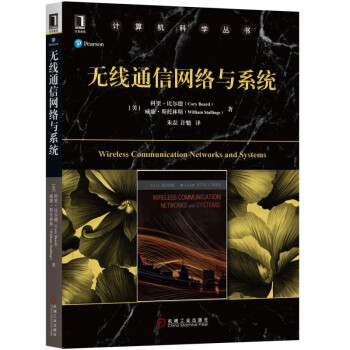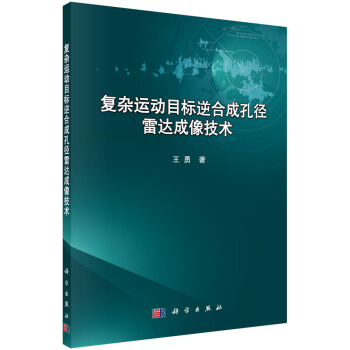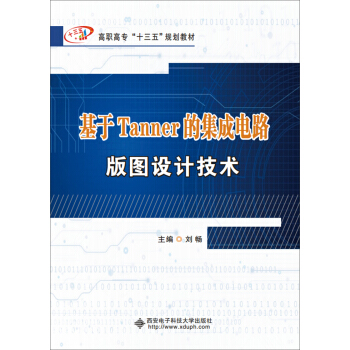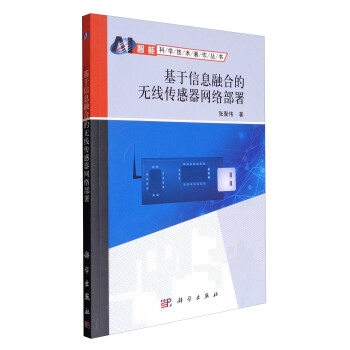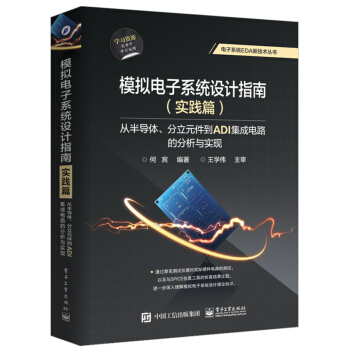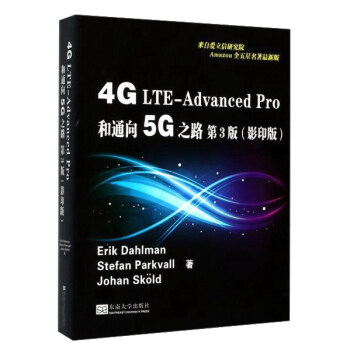

具体描述
内容简介
3GPP将在201 8年发布5G技术规范,包括LTE—Advanced Pro和全新的5G无线接入技术。与3GPP相关的工程师们通过这本实用而富有成效的书籍,提供了一个深入了解3GPP所采用的新技术与标准的机会。
《4G LTE-Advanced Pro和通向5G之路(第3版 影印版 英文版)》不仅对这些具体方案的选取原因以及在LTE、LTE—Advanced和LTE—Advanced Pro中的应用情况进行了详尽阐述,,还对通向5G的发展之路和相关的潜在技术进行了详细介绍。
——这本具有**作用的书籍是由深入参与3GPP技术规范发展的爱立信工程师们所著,涉及3GPP在LTE、LTE—Advanced、LTE—Advanced Pro以及Release 13方面的技术规范
——10篇新章节,涵盖了ReIease 12和13的全部主要特征
——2篇全新章节,介绍了5G无线接入技术,包括3GPP发展下新的5G无线接入技术的核心技术单元
本版已全面校订并更新,充分体现了3GPP Release 12和1 3中描述的对LTE的巨大扩展以及在即将到来的5G时代中LTE扮演的角色。
本版的全新内容包括下述更新:
——4G和5G的无线接入
——4G和5G的频谱
——机器间通信
——设备间通信
——辅助授权接入
——全维度MIMO
——小蜂窝增强,eMTA,FDD+TDD融合,双连接
——5G无线接入的需求与通用架构,重点强调5G中现有的和新出现的应用场景
——5G无线接入技术的解决方案
目录
PrefaceAcknowledgments
Abbreviations and Acronyms
CHAPTER 1Introduction
1.1 IG and 2G——Voice-Centric Technologies
1.2 3G and 4G——Mobile Broadband
1.3 5G——Beyond Mobile Broadband——Networked Society
1.4 Outline
CHAPTER 2 Spectrum Regulation and Standardization From 3G to 5G
2.1 Overview of Standardization and Regulation
2.2 ITU-R Activities From 3G to 5G
2.2.1 The Role of ITU-R
2.2.2 IMT-2000 and IMT-Advanced
2.2.3 IMT-2020
2.3 Spectrum for Mobile Systems
2.3.1 Spectrum Defined for IMT Systems by the ITU-R
2.3.2 Frequency Bands for LTE
2.3.3 New Frequency Bands
2.4 Spectrum for 5G
2.4.1 New Frequency Bands to be Studied by WRC
2.4.2 RF Exposure Above 6 GHz
2.5 3GPP Standardization
2.5.1 The 3GPP Process
2.5.2 Specifying 5G in 3GPP
CHAPTER 3 LTE Radio Access: An Overview
3.1 LTE Basic Technologies
3.1.1 Transmission Scheme
3.1.2 Channel-Dependent Scheduling and Rate Adaptation
3.1.3 Inter-Cell Interference Coordination
3.1.4 Multi-Antenna Transmission
3.1.5 Spectrum Flexibility
3.1.6 Multicast and Broadcast Support
3.1.7 Positioning
3.2 LTE Evolution
3.3 Spectrum Flexibility
3.3.1 Carrier Aggregation
3.3.2 License-Assisted Access
3.4 Multi-Antenna Enhancements
3.4.1 Extended Multi-Antenna Transmission
3.4.2 Multi-Point Coordination and Transmission
3.4.3 Enhanced Control-Channel Structure
3.5 Densification, Small Cells, and Heterogeneous Deployments
3.5.1 Relaying
3.5.2 Heterogeneous Deployments
3.5.3 Small-Cell On-Off
3.5.4 Dual Connectivity
3.5.5 Dynamic TDD
3.5.6 WLAN Interworking
3.6 Device Enhancements
3.7 New Scenarios
3.7.1 Device-to-Device Communication
3.7.2 Machine-Type Communication
3.8 Device Capabilities
CHAPTER 4 Raflio-lnterface Architecture
4.1 Overall System Architecture
4.1.1 Core Network
4.1.2 Radio-Access Network
4.2 Radio Protocol Architecture
4.2.1 Packet-Data Convergence Protocol
4.2.2 Radio-Link Control
4.2.3 Medium-Access Control
4.2.4 Physical Layer
4.3 Control-Plane Protocols
4.3.1 State Machine
CHAPTER 5 Physical Transmission Resources
5.1 Overall Time-Frequency Structure
5.2 Normal Subframes and MBSFN Subframes
5.3 Antenna Ports
5.3.1 Quasi-co-Located Antenna Ports
5.4 Duplex Schemes
5.4.1 Frequency-Division Duplex
5.4.2 Time-Division Duplex
5.4.3 LTE and TD-SCDMA Coexistence
5.4.4 License-Assisted Access
5.5 Carrier Aggregation
5.6 Frequency-Domain Location of LTE Carriers
CHAPTER 6 Downlink Physical-Layer Processing
CHAPTER 7 Uplink Physical-Layer Processing
CHAPTER 8 Retransmission Protocols
CHAPTER 9 Scheduling and Rate Adaptation
CHAPTER 10 Channel-State Information and Full-Dimension MIMO
CHAPTER 11 Access Procedures
CHAPTER 12 Carrier Aggregation
CHAPTER 13 Multi-Point Coordination and Transmission
CHAPTER 14 Heterogeneous Deployments
CHAPTER 15 Small-Cell Enhancements and Dynamic TDD
CHAPTER 16 Dual Connectivity
CHAPTER 17 Unlicensed Spectrum and License-Assisted Access
CHAPTER 18 Relaying
CHAPTER 19 Multimedia BroadcasVMulticast Services
CHAPTER 20 LTE for Massive MTC Applications
CHAPTER 21 Device-to-Device Connectivity
CHAPTER 22 Spectrum and RF Characteristics
CHAPTER 23 5G Wireless Access
CHAPTER 24 New 5G Radio-Access Technology
CHAPTER 25 Concluding Remarks
References
Index
用户评价
《4G LTE-Advanced Pro和通向5G之路(第3版 影印版 英文版)》——这个书名就像是一张邀请函,邀请我去探索通信技术的演进史,并预见其未来形态。作为一名对技术细节有着浓厚兴趣的读者,我对这本书的期待值爆棚。 我设想,书中会非常详尽地阐述4G LTE-Advanced Pro的技术内涵,这不仅仅是简单的速率提升,而是涵盖了其在频谱利用效率、终端功耗优化、网络可靠性增强等方面的诸多改进。例如,它可能会深入剖析载波聚合的复杂性,以及如何通过智能天线技术实现更高的吞吐量。而“通向5G之路”的副标题,更是点燃了我对这本书的无限好奇。我期待书中能够详细介绍5G的关键技术,如新空口(NR)的设计理念、大规模MIMO的应用、网络切片如何实现差异化服务,以及边缘计算的兴起等等。这本书无疑将是对通信技术发展脉络的一次系统性梳理,让我能够从宏观到微观,全面理解从4G迈向5G的精彩旅程。
评分《4G LTE-Advanced Pro和通向5G之路(第3版 影印版 英文版)》——这个书名本身就带有一种探索未知、洞悉未来的魅力。对于我这样的技术爱好者而言,它不仅仅是一本关于技术的书籍,更像是一张绘制着通信技术发展蓝图的地图。我预期本书会详细介绍4G LTE-Advanced Pro的各项关键技术,包括但不限于其在频谱效率、终端能力、网络架构等方面的突破性进展。 更重要的是,“通向5G之路”这个部分,让我对本书充满了无限的遐想。我坚信,这本书会详细阐述5G技术的核心概念,比如其在超高速率、超低延迟、海量连接等方面的独特优势,以及这些优势是如何逐步从LTE-Advanced Pro的技术演进中孕育出来的。它可能会深入探讨5G的网络架构设计、关键技术实现,例如新空口(NR)的设计理念、核心网的演进、以及如何实现更灵活的网络切片和边缘计算等。这本书将是对整个移动通信技术发展脉络的一次深度梳理,为理解下一代通信技术奠定坚实的基础。
评分这本书的标题——《4G LTE-Advanced Pro和通向5G之路(第3版 影印版 英文版)》——本身就透露出一种探索的渴望和对技术前沿的关注。对于任何一个身处通信行业,或者对移动通信技术演进抱有强烈好奇心的读者来说,这样的书名就像是一扇通往未来信息世界的窗口。它承诺的不仅仅是某个特定技术标准的细节,更重要的是,它描绘了一条从现有的先进技术向下一代革命性技术过渡的清晰路径。 想象一下,当你手握这样一本厚重的英文原版书籍,触感温润的书页仿佛承载着无数工程师和科学家的智慧结晶。书中的内容,虽然我尚未深入翻阅,但从其标题推测,一定涵盖了4G LTE-Advanced Pro的关键技术特性,比如载波聚合的复杂机制、MIMO技术的精妙之处、以及如何通过这些手段突破频谱和带宽的限制,实现更快的速率和更低的延迟。更重要的是,它将目光投向了5G,预示着书中会深入剖析5G的核心理念,例如网络切片、超可靠低延迟通信(URLLC)、海量机器类通信(mMTC)等,并详细阐述这些技术是如何建立在LTE-Advanced Pro的基础之上,又如何超越现有范畴,为物联网、自动驾驶、增强现实等颠覆性应用奠定基础。这本书无疑是为那些希望理解通信技术“过去”、“现在”和“未来”的专业人士和技术爱好者量身打造的。
评分初次见到《4G LTE-Advanced Pro和通向5G之路(第3版 影印版 英文版)》这个标题,一股强烈的求知欲便油然而生。作为一名长期关注移动通信技术发展的人士,我对LTE-Advanced Pro所代表的4G技术成熟期的精髓以及它为通向5G所铺设的道路充满了期待。书中“第3版”的字样,更是说明了其内容的时效性和内容的不断迭代更新,这对于一个快速发展的技术领域而言至关重要。 我设想,本书定会深入浅出地解析LTE-Advanced Pro的各项增强技术,比如多址、多天线、帧结构等方面的优化,以及这些优化是如何带来网络性能的飞跃。而“通向5G之路”的副标题,则暗示了本书并非止步于4G,而是会向前展望,详细阐述5G的关键技术,例如毫米波、大规模MIMO、波束赋形、网络切片等,以及这些新技术是如何在LTE-Advanced Pro的基础上进行演进和创新的。书中可能会包含大量的图表、公式和案例分析,帮助读者理解复杂的技术原理。对于想要在通信领域深耕,或者希望了解下一代移动通信技术发展趋势的读者来说,这本书绝对是不可多得的学习资料。
评分这本书的标题,《4G LTE-Advanced Pro和通向5G之路(第3版 影印版 英文版)》,就好像一句充满召唤力的科技宣言。对于我这样希望深入理解移动通信技术发展轨迹的人来说,它勾勒出了一个清晰的学习路径。我可以想象,这本书会从LTE-Advanced Pro这个4G技术的巅峰阶段出发,详细解析其在性能提升、功能扩展等方面的精妙设计,比如载波聚合的实现方式、更高级的MIMO技术、以及对低功耗设备的支持等。 紧接着,“通向5G之路”的描述,让我更加期待。这意味着书中不会止步于对当前技术的介绍,而是会着眼于未来,深入探讨5G的核心技术和关键创新。我猜想,书中会详细阐述5G所带来的革命性变化,例如超高带宽、超低时延、以及海量设备连接的能力,并会重点介绍实现这些目标所依赖的关键技术,例如新的调制解调方案、大规模MIMO、毫米波通信、以及网络功能的虚拟化(NFV)和软件定义网络(SDN)等。这本书无疑将为我打开一扇通往下一代移动通信世界的大门。
相关图书
本站所有内容均为互联网搜索引擎提供的公开搜索信息,本站不存储任何数据与内容,任何内容与数据均与本站无关,如有需要请联系相关搜索引擎包括但不限于百度,google,bing,sogou 等,本站所有链接都为正版商品购买链接。
© 2026 windowsfront.com All Rights Reserved. 静流书站 版权所有


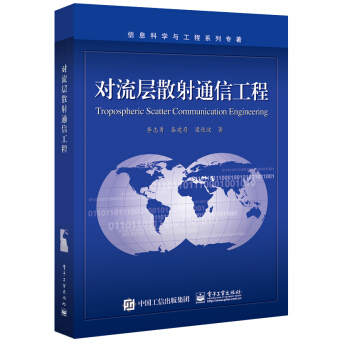

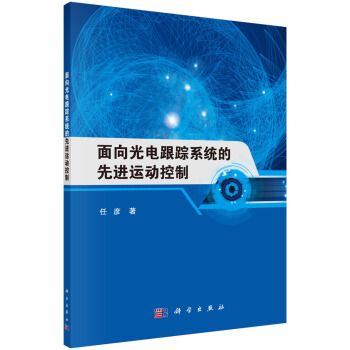
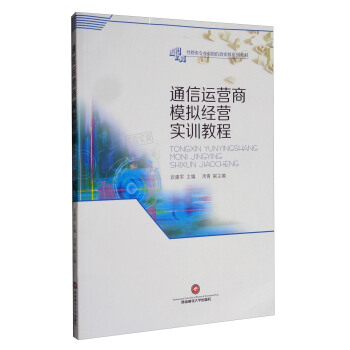
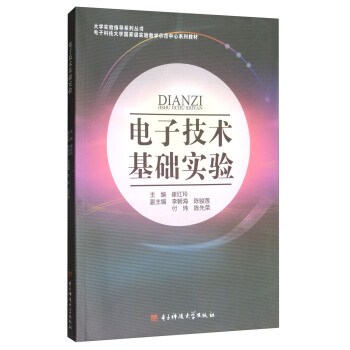
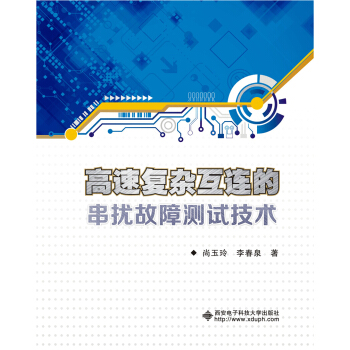

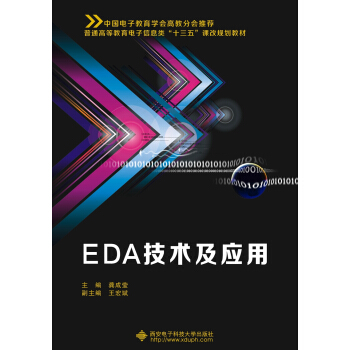
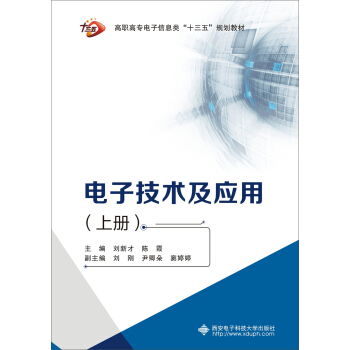
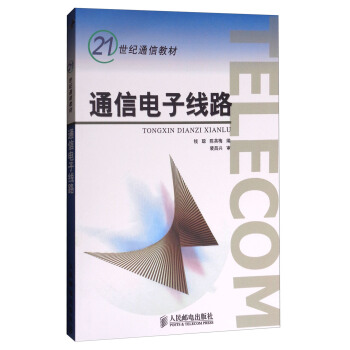
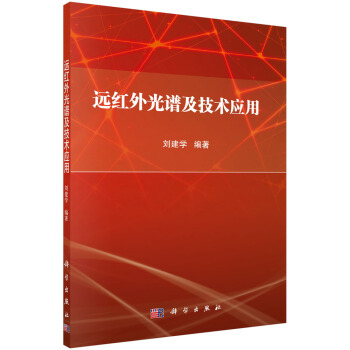
![数字化校园探索与信息化管理能力评估 [Exploration of Digital Campus and Evaluation of Information Management Ability] pdf epub mobi 电子书 下载](https://pic.windowsfront.com/12215600/596dbee8Nd91a8b58.jpg)
